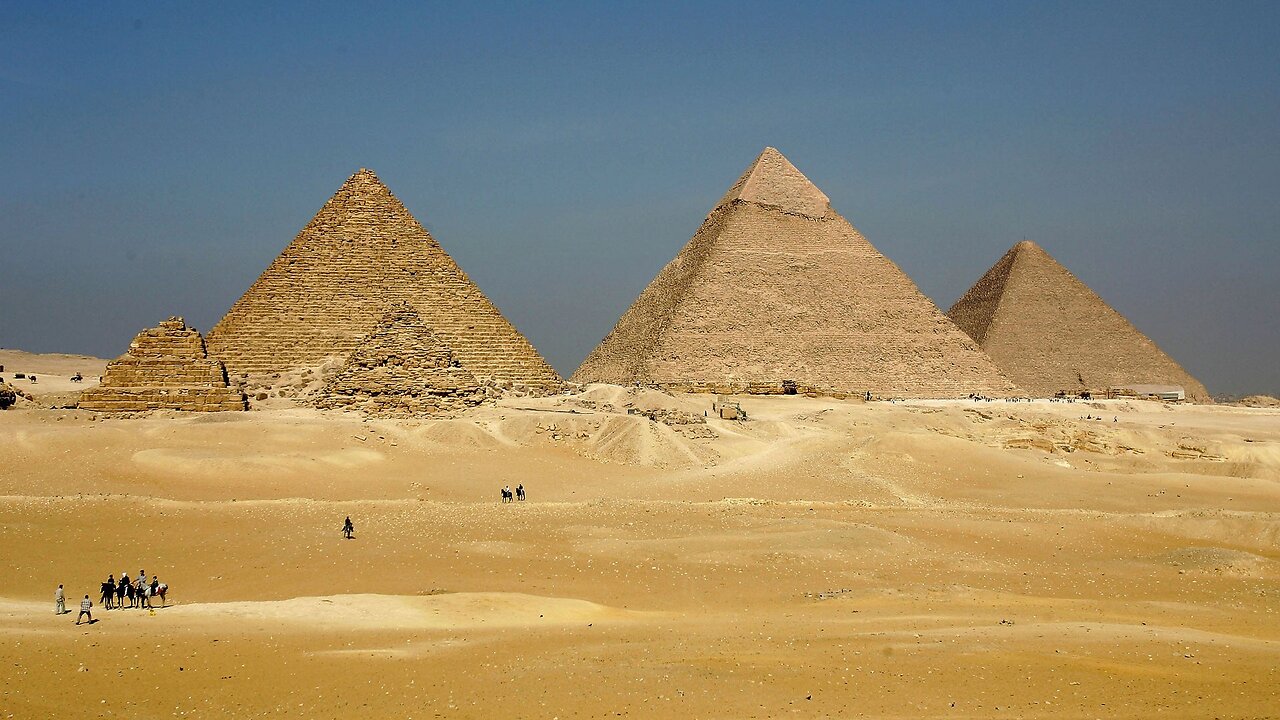Premium Only Content

Mystery of Ancient Pyramids | How were they really built? | Dhruv Rathee
The history of Egypt is incredibly rich and spans thousands of years, from ancient times to the modern era. Here's an overview of its history:
1. **Ancient Egypt (c. 3100 BC - 30 BC):** This is the most famous period of Egyptian history, known for its pharaohs, pyramids, and cultural achievements. The ancient Egyptian civilization developed along the Nile River, with the Nile's annual flooding providing fertile soil for agriculture. The civilization is known for its elaborate religious beliefs, monumental architecture, hieroglyphic writing system, and significant advancements in mathematics, medicine, and engineering.
2. **Pharaonic Period:** Ancient Egypt saw the rise and fall of various dynasties, each with its own pharaohs. Notable periods include the Old Kingdom, characterized by pyramid-building (c. 2686 - 2181 BC); the Middle Kingdom, known for social and political stability (c. 2055 - 1650 BC); and the New Kingdom, a period of great expansion and military conquests (c. 1550 - 1070 BC).
3. **Greek and Roman Rule (332 BC - 4th century AD):** In 332 BC, Alexander the Great conquered Egypt, marking the beginning of the Greek Ptolemaic dynasty. Cleopatra VII, the last pharaoh of Egypt, famously aligned with Roman leaders Julius Caesar and Mark Antony. Egypt eventually became a Roman province in 30 BC after the death of Cleopatra.
4. **Byzantine and Islamic Periods (4th - 16th centuries AD):** With the spread of Islam in the 7th century, Egypt became part of the Islamic Caliphate. The city of Cairo was founded in 969 AD by the Fatimid dynasty. During the Middle Ages, Egypt became a center of Islamic learning and culture.
5. **Ottoman Rule (16th - 19th centuries):** Egypt came under Ottoman rule in the early 16th century. The Ottomans maintained control with local leaders called Mamluks. In the late 18th century, Napoleon's brief occupation marked a significant historical event.
6. **Modern Era:** In the 19th century, Egypt underwent modernization efforts under rulers like Muhammad Ali Pasha, who attempted to reform the country's institutions. However, this period also saw increased foreign influence, leading to British control in 1882.
7. **British Occupation and Independence:** British control continued until Egypt gained nominal independence in 1922. However, British influence persisted, leading to tensions and eventual revolution. In 1952, a military coup led by Gamal Abdel Nasser resulted in the establishment of the Republic of Egypt and the end of the monarchy.
8. **Nasser, Sadat, and Mubarak Eras:** Gamal Abdel Nasser, Anwar Sadat, and Hosni Mubarak each played significant roles in shaping modern Egypt. Nasser nationalized the Suez Canal and pursued pan-Arab ideals. Sadat's policies shifted towards peace, and he signed the Camp David Accords with Israel in 1978. Mubarak ruled for almost three decades before facing a popular uprising in 2011 during the Arab Spring.
9. **Recent History:** The 2011 uprising led to Hosni Mubarak's resignation and significant political changes. Egypt experienced periods of political uncertainty, including the election of Mohamed Morsi of the Muslim Brotherhood as president. In 2013, following widespread protests, the military removed Morsi from power. Abdel Fattah el-Sisi was elected president in 2014 and continues to lead the country today.
This overview highlights just a few key points in Egypt's extensive history. The country's history is marked by its rich cultural heritage, contributions to human civilization, and its role in regional and global affairs.
-
 1:01:38
1:01:38
DeVory Darkins
10 hours ago $35.71 earnedSchumer suffers humiliation as critics applaud Trump's historic peace deal with Tim Pool
95.3K43 -
 56:09
56:09
Steven Crowder
15 hours agoBlack Fatigue is Real and I Told Them Why | Black & White on the Gray Issues
476K2.11K -
 2:05:36
2:05:36
Inverted World Live
8 hours agoSaint's Tomb Opened for First Time in 800 Years for Ancient Ritual | Ep. 121
82.2K12 -
 2:43:30
2:43:30
TimcastIRL
5 hours agoNY AG Indicted For FRAUD, Faces 30 Years In Prison, $1 MILLION FINE | Timcast IRL
198K79 -
 1:09:16
1:09:16
Man in America
15 hours agomRNA 2.0: This Frightening Tech Can Target Your BRAIN Using Biological Post Codes
42.9K12 -
 1:28:31
1:28:31
The Charlie Kirk Show
5 hours agoTHOUGHTCRIME Ep. 100 — Turning Point Halftime? Potatoes and Katie Porter? Hasan the Dog Shocker?
91K46 -
 6:33:19
6:33:19
SpartakusLIVE
6 hours agoNEW Update, NEW Meta || Zombies Mode is BACK - Smokes NURFED
56.2K5 -
 13:10
13:10
Robbi On The Record
5 hours ago $3.49 earnedThe War on Christians | China’s Surveillance & Nigeria’s Killing Fields
32K29 -
 1:24:49
1:24:49
Flyover Conservatives
1 day agoYour Home Just Became a Healing Room — The Truth About Red Light & Med Bed - Jonathan Otto | FOC Show
35K4 -
 2:11:35
2:11:35
Mally_Mouse
4 days ago🎮 Throwback Thursday! Let's Play: Kingdom Hearts 1 pt. 2
27.8K2